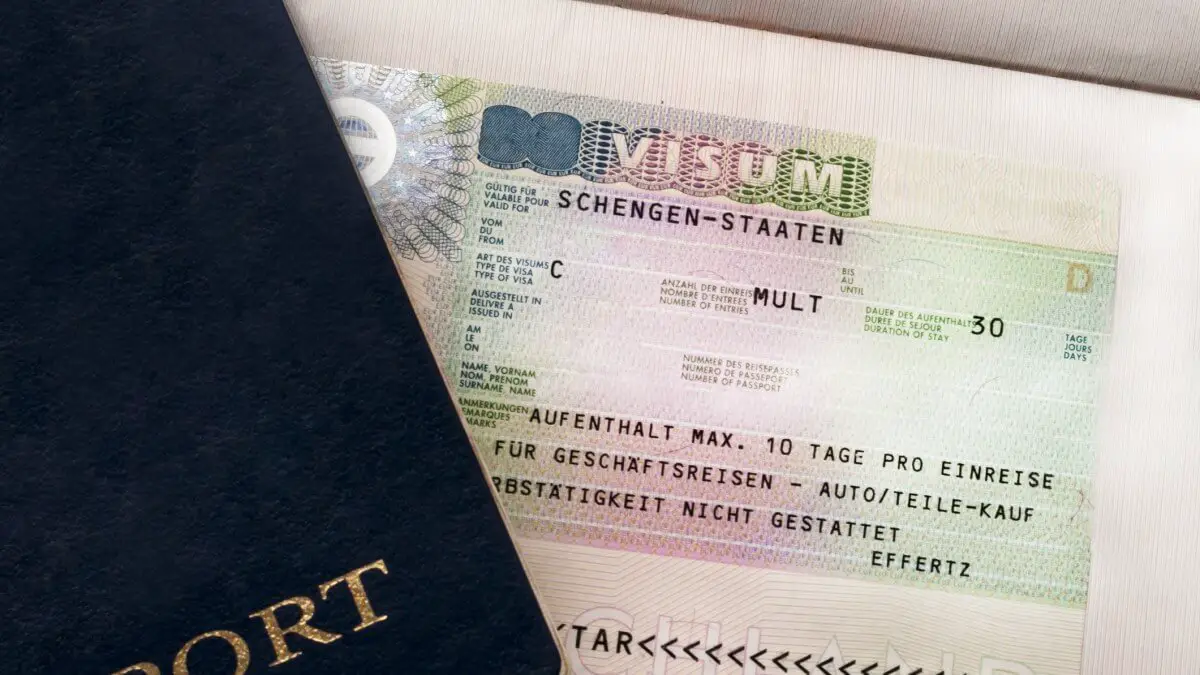A Schengen visa is a type of visa that allows people from outside Europe the right to travel freely within the Schengen member countries.
Studying in a Schengen country opens doors to a world-class education and diverse cultural experiences. However, the process of obtaining a visa can be daunting.
Fear not, for this guide will walk you through every step with ease, ensuring your dreams of international education become a reality.
Many other students like you, do wish to apply for a Schengen visa but do not know the requirements and how to go about the process. That is exactly what this article is here to help fix by showing you how to get your Schengen visa.
Who Can Apply for a Schengen Visa?
You can apply for a Schengen visa even if you are not a European citizen and you intend to study in Europe.
If you want to stay longer than 90 days, you must obtain a residence permit.
Please note that if you are a citizen of the countries listed below, you don't need to apply for a Schengen Student visa:
- Antigua and Barbuda
- Argentina
- Australia
- Bahama
- Barbados
- Brazil
- Brunei
- Canada
- Chile
- Costa Rica
Application Forms and Supporting Documents

You will need to submit a Schengen visa application form with the following supporting documents:
- A Valid passport or travel document
- At least 2 passport-sized photos
- Travel itinerary
- Medical/travel insurance
- Acceptance/invitation letter from a university
- A supporting document regarding accommodation. However, you may be exempted from providing the required documentation if you have sufficient financial means to support your stay and accommodation costs while in Europe.
- Documented proof of financial resources. You will need to show proof that you can support your stay in Europe. The following proof can be presented; cash in convertible currency, traveler's cheques, checkbooks for a foreign currency account, credit cards, or any other means that guarantees funds in hard currency.
- Please contact the consulate or embassy of the country you are submitting your application form to, for additional documentation.
READ ALSO: Visa Reapplication Guide | How to Re-apply for Visa After a Rejection For International Students
What is the Validity Period of a Schengen Visa
A Schengen visa is valid for 90 days or 3 months. If you intend to study for more than 90 days, you must apply for a residence permit.
Some countries allow you to apply for a residence permit once you are in Europe. You may use your residence permit to move freely to other Schengen member countries.
Where to Submit a Schengen Visa Application
You should submit your visa application and the supporting documents to the country's consulate or embassy you're traveling to.
Once you've submitted your application, receiving the visa can take 4 to 8 weeks.
Schengen Member Countries
A total of 25 European countries make up the Schengen area and they include the following:
Austria, Belgium, the Czech Republic, Denmark, Estonia, Finland, France, Germany, Greece, Hungary, Italy, Latvia, Lithuania, Luxembourg, Malta, the Netherlands, Poland, Portugal, Slovakia, Slovenia, Spain, Sweden (but not Ireland and the United Kingdom) plus Iceland, Norway, and Switzerland.
READ ALSO: Top 20 Common Student Visa Interview Questions and Answers
FAQs
What is the processing time for a Schengen student visa?
Processing times vary but generally range from 15 to 45 days. It's advisable to apply well in advance to avoid last-minute stress.
Can I work while studying on a Schengen student visa?
Yes, most Schengen countries permit students to work a certain number of hours per week. However, regulations differ, so research the specific guidelines of your host country.
What happens if my visa application is denied?
If your application is rejected, the embassy or consulate will provide reasons. You can reapply, address the issues highlighted, or consider alternative study destinations.
Is health insurance mandatory for Schengen student visas?
Yes, having comprehensive health insurance is mandatory. Ensure your insurance plan meets the specific requirements of your host country.
Can I travel to other Schengen countries with my student visa?
Yes, your Schengen student visa allows travel within the Schengen Zone, enabling you to explore neighboring countries during your study period.
What should I do if my visa is about to expire?
Plan ahead! Research visa renewal processes well in advance. Typically, you'll need to demonstrate ongoing enrollment and financial stability.
Summary
Embarking on an international education journey is transformative and enriching.
By understanding the intricacies of the Schengen visa application process, you're one step closer to realizing your educational aspirations. Stay persistent, stay positive, and soon you'll find yourself studying amidst the rich tapestry of a Schengen country.
Thank you for reading our article today! Please remember to share this article on social media to help others benefit too. It also helps us improve our algorithm and relevance to the public. Thanks for Sharing!!! Follow us on Socials: Facebook - LinkedIn - Twitter
Discover more from Internet Parrot
Subscribe to get the latest posts sent to your email.









